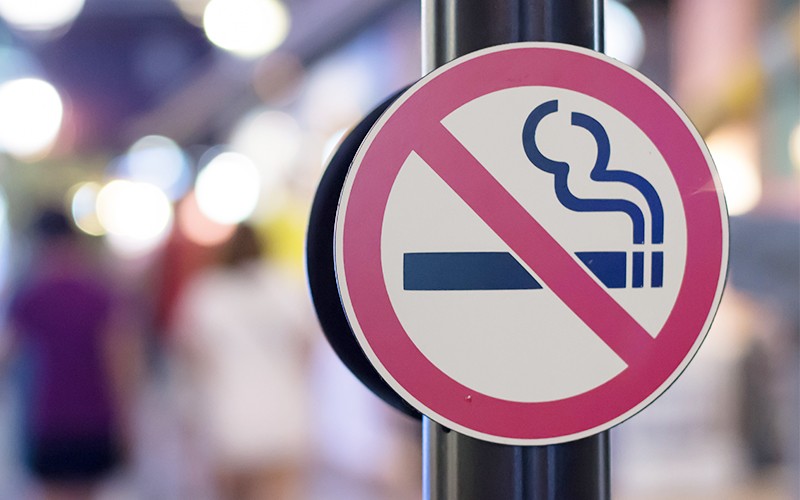Tobacco Smoking Among School-aged Children
Article published in the "A Tribuna" newspaper, of Santo Ângelo, Brazil, on November 28 and 29, 2009 (Saturday and Sunday).
According to data from the World Health Organization (WHO), 90 percent of smokers had their first contact with tobacco during their school-age years, between the ages of 5 and 19. The program Educação em Debate [Education on Focus] of the Super Good Will Radio Network discussed this serious issue seeking to show the enormous responsibility of teachers and the family in the search for mechanisms that prevent contact with smoking, the gateway to harder drugs.


Suelí Periotto

Mônica Andreis
In an interview with educator Suelí Periotto, Dr. Mônica Andreis, who holds a Master’s in Clinical Psychology from the University of São Paulo (USP) and is the Deputy Director of the Alliance for the Control of Tobacco Use (ACT, in Portuguese) in Brazil, highlighted the role of schools in preventing this addiction: "It’s the opportunity students have to learn a little more about tobacco smoking and, as a result, have greater awareness of the importance of not beginning to smoke. The school can contribute a lot not only by focusing on health, but by going further, with discussions about why people smoke, the role of advertising, and how much this affects not only our health but the environment in which we live. Teaching establishments can approach this issue from different angles. The accumulation of cigarette butts, for example, is one of the things that pollute beaches most and that kill marine animals, because they choke on them. Many forests end up being devastated in order to produce cigarettes, because both wood and paper are used. This information is very important. Students can take this knowledge home and share it with their parents, relatives or the community itself. The school can organize a science fair and this can be a topic for discussion; they can show a film, invite the family to participate, and then debate the subject afterwards. We’ve got various ways of exploring the topic and teachers have a fundamental role to play in preventing tobacco use."
Anti-smoking law
According to Dr. Andreis, the anti-smoking law is actually contributing to children’s disinterest in cigarettes: "Today, this impediment discourages them from starting to smoke, because people are no longer smoking in all the places as they used to. This fact, allied to an approach by the school concerning this subject, in a constant manner, ends up favoring people not to start smoking in their adolescence."

The power of influence
Questioned about the emotional aspects that may have an influence on children and young people with regard to smoking, the psychologist also clarified: "Some factors end up favoring them to try cigarettes or to begin smoking. We know that children of parents who smoke are prone to become future smokers. Many children begin smoking because of the model they have at home, or even at school; the teacher they admire and who smokes. For this reason family members and teachers need to be aware of the power of the influence they have on the lives of children. Moreover, in adolescence, we go through a series of changes. It’s natural for insecurity to appear and sometimes a cigarette is the safety valve in our search for fleeting pleasure. It’s important for children to have this perception that smoking will not bring them sustainability or guarantee they will be successful in life. Cigarettes are a drug and once children try them they can easily become chemically dependent. So if they’re aware of this they’re naturally able to say no."
Avoidable death
In her final words, psychologist Mônica Andreis emphasized that "passive smoking is considered by the World Health Organization as the primary cause of potentially avoidable deaths. This is a very large dimension. In fact, since we used to have a cultural assessment that smoking was not such a serious problem, people ignored this a little. Nowadays we have information and clarity regarding the harm tobacco does to health. It’s also important for schools to value this and, in fact, undertake activities to help young people with knowledge and prevention."
Thank you, Dr. Mônica Andreis. At the schools of the Legion of Good Will and in its socioeducational programs the subject is dealt with in all due seriousness. This is our contribution to warning above all future generations as to the destructive effect of tobacco smoking.
The comments do not represent the views of this site and are the sole responsibility of their authors. It denied the inclusion of inappropriate materials that violate the moral, good customs, and/or the rights of others. Learn more at Frequently asked questions.